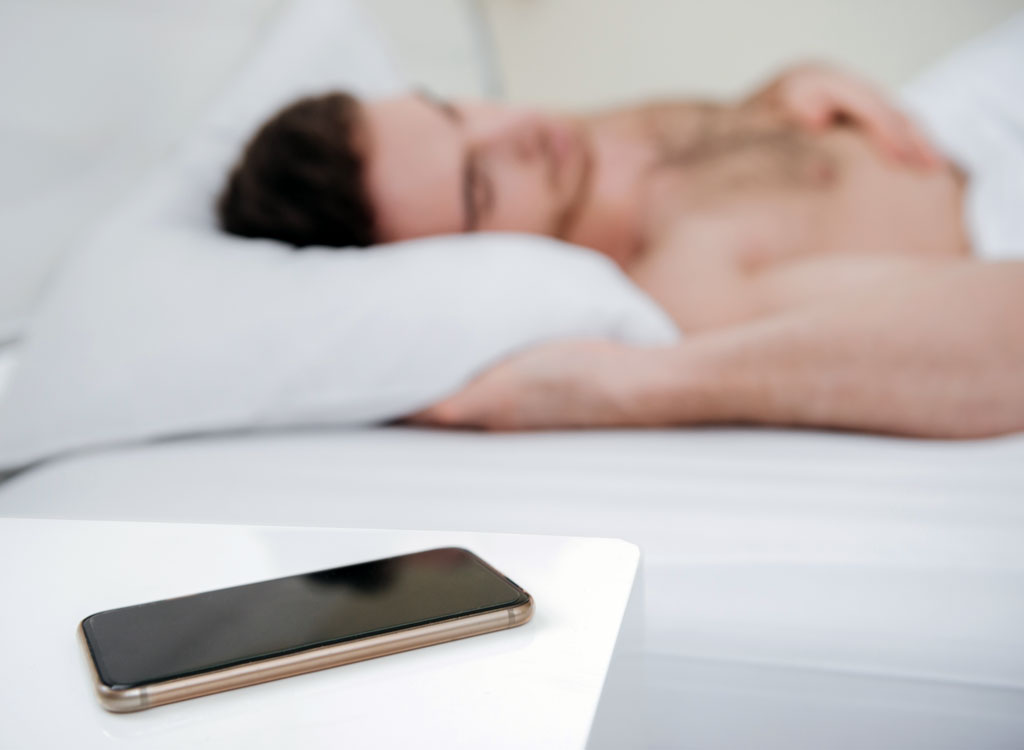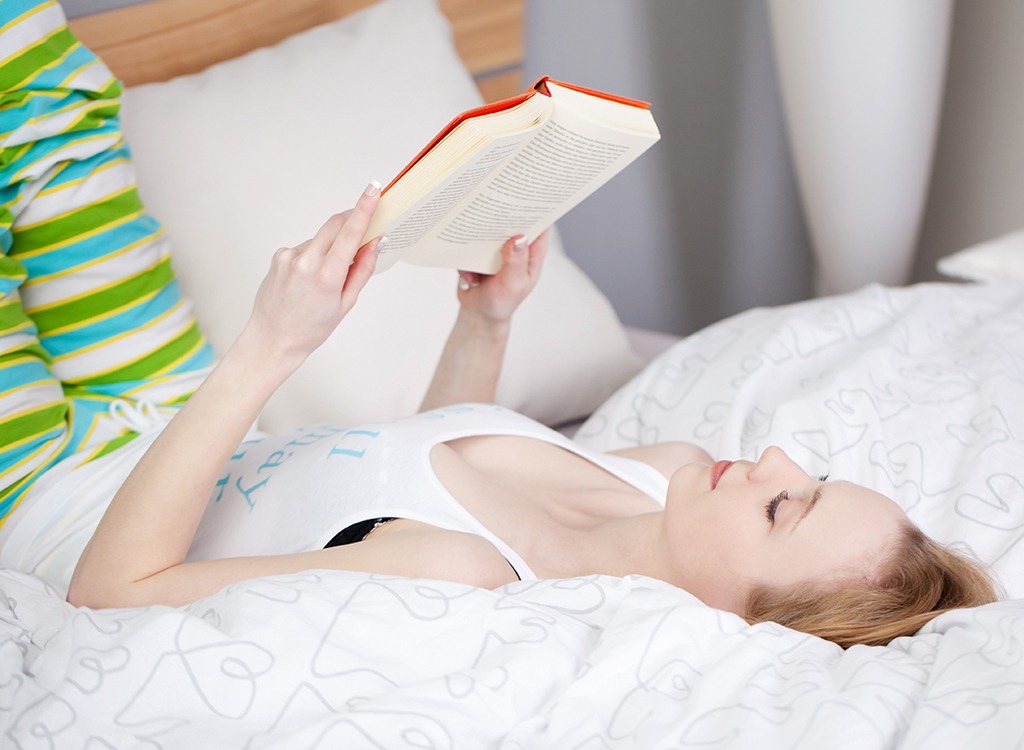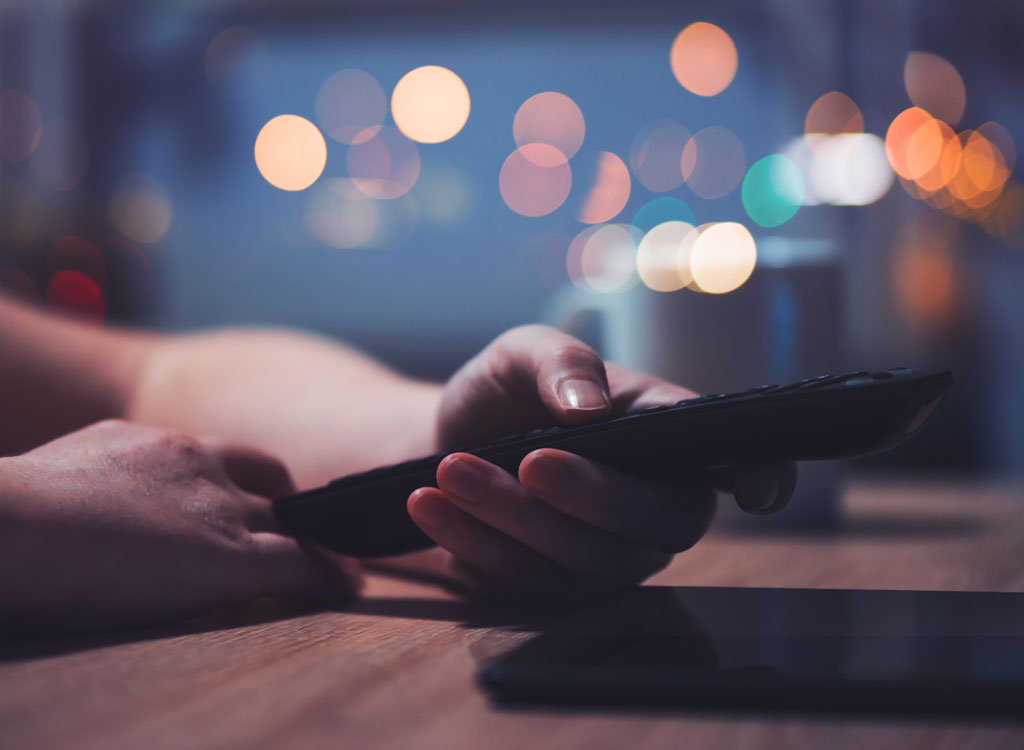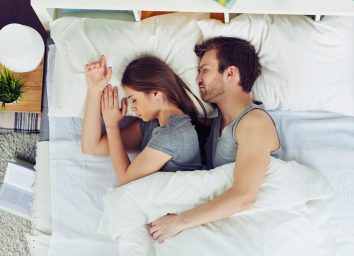Why Using Devices at Bedtime Hinders Weight Loss
If you’re looking to lose weight, it’s possible that one seemingly innocuous pre-bedtime habit could be keeping you from getting that lean body you crave.
Numerous studies have established a connection between a lack of sleep and weight gain, and as it turns out, there’s also a large body of research that suggests using electronic devices such as computers, tablets, and cell phones prior to hitting the hay negatively impacts the duration and quality of your sleep.
To put it succinctly: using electronics before bed leads to a less restful and shorter sleep because it throws your circadian rhythm out of whack. Unfortunately for your waistline, inadequate sleep can cause weight gain and may even contribute to risk of developing cancer, diabetes, and heart disease.
Though it’s frightening to think that something as innocent as checking Instagram or watching YouTube videos prior to turning in for the day can have such a negative impact on your overall health, there are steps you can take to ensure you won’t be brought down by an envoy of electronics. Scroll down for tips that can help you establish better nighttime habits, and brush up on practices to avoid with the 31 Things You Did Today to Slow Your Metabolism!
Keep Electronics Away From You While You Sleep

Since melatonin, a hormone whose production in your body is triggered by darkness, makes people drowsy and helps them sleep better, it’s crucial for weight loss to have all electronic devices out of reach when you’re ready for a night of restful slumber if you want the hormone to do its job effectively. In fact, a study in the Pediatric Obesity journal found that students with access to one electronic device were nearly one and a half times as likely to be overweight compared to those with none. You can also avoid gaining additional pounds by putting these 40 Tips That Double Weight Loss to the test.
And Put Them Down A Couple Of Hours Before Bed

Electronic devices emit blue light, which is problematic before bed time because it is especially disruptive to melatonin production. Harvard researchers conducted an experiment comparing the effects of 6.5 hours of exposure to blue light to exposure to green light of comparable brightness, and they discovered the blue light suppressed melatonin for about twice as long as the green light and shifted circadian rhythms by twice as much. In order to avoid the negative effects of blue light, researchers suggest you power down all electronics two or three hours before you head off to bed.
If you simply must use electronics late at night, put them in “night mode” or install programs such as F.lux. These programs overlay your screen in warmer tones and minimize cool blue tones which could interfere with your body’s melatonin production.
Tone Down The Excitement

In addition to messing up our melatonin because of the light they emit, electronics can also rile us up in a way that makes it more difficult to then drift off into a restful sleep. “People who watch shows or sports before bedtime (something that gets them excited) can sometimes find it difficult after the event to go to sleep because adrenaline is up,” explains Dr. Alcibiades Rodriguez, MD, assistant professor of Neurology at the NYU Langone Comprehensive Epilepsy Center—Sleep Center. In other words, if you’re in the market for more sleep turn off the big game before it gets too late.
You Don’t Have to Ditch Electronics Entirely

Though all of this data might be enough to push you to ditch your electronics for good, experts actually don’t advocate for a complete blackout either.
In a study of 109 people that was published in the journal Sleep Health, researchers found that people who were exposed to greater amounts of light during the morning hours, between 8 a.m. and noon, fell asleep more quickly at night and had fewer sleep disturbances during the night compared to those exposed to low light in the morning. That’s why those in the know suggest exposing yourself to lots of bright light during the day, which will boost your ability to sleep at night, as well as your mood and alertness during waking hours. For tips on what you can do early in the morning to stay healthy and fit, take a look at this list of the 37 Best Breakfast Foods for Weight Loss!








